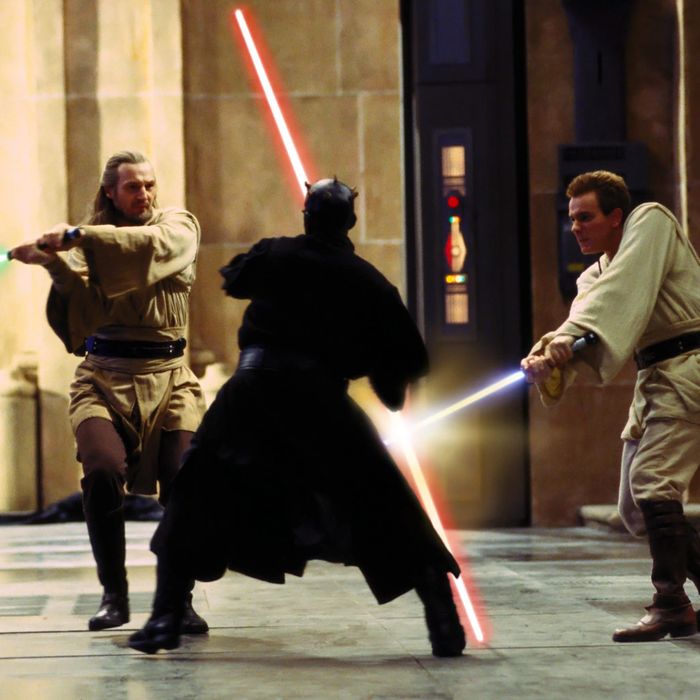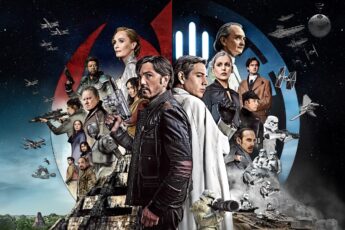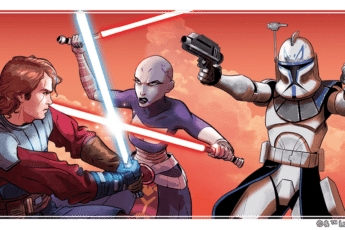If, like me, you were born in the mid 80’s then Star Wars had a huge impact on your childhood. I remember being amazed by the sheer size of everything, the starships, the galaxies and the space battles.
The battles across space, sand and snow that produced some epic fight scenes, amazing characters, intimidating troopers and towering vehicles were a masterful back drop to a classic tale of good versus evil. Or, as George Lucas wanted us to feel, hope.
Hope is the overriding theme throughout Star Wars, even at it’s darkest there is always a glimmer of hope.
So after being amazed by the original trilogy, my feelings on the prequel trilogy went through stages;
Stage 1 – Child-like awe
Being a young, impressionable child when the Phantom Menace was released, I was dazzled by the effects, the CGI and colourful worlds and the vast numbers of new characters joining the Star Wars universe. I was in heaven.
For the release of the Attack of the Clones, all I remember were the Clone Troopers. White ones, white with yellow, white with red. Man, they were cool. Give me two hours of Clone Troopers blasting their way through droids and I would’ve been happy. Just WOW.
Revenge of the Sith was, and still is, an emotional rollercoaster. We’ve all seen it, I don’t need to explain it!
Stage 2- Film Snobbery
Around 10 years after their release, the prequels had, for me, become a source of embarrassment for the Star Wars name. I gladly joined the ‘I hate Jar Jar’ bandwagon and was fairly happy slating the overwhelming use of CGI, which was by then showing its age, poor acting from Hayden Christensen, odd plot choices and bizarre child birth. If I ever watched them again, I’d skip Episode 1, start halfway through 2 and watch Episode 3 all the way through, wincing my way through the Anakin and Padme scenes.
If I ever tried convincing a non-Star Wars fan (they do exist apparently) to watch the series, I was never sure what to say about 1-3. Watch them first because they are sh*t but you’ll understand the back story? Watch them after the original trilogy, because that’s how it’s meant to be? Don’t watch them at all? And I guess that was my default position for about 10 years.
Of course, then the animated series came out which was just all kinds of Star Wars goodness.
Stage 3 – Emotional Growth
After giving up being a film snob and appreciating films for what they were – a source of entertainment and escape – I started enjoying the prequels more, I could understand the journeys our characters were going on, appreciate the little nods and suggestions that you see along the way (like Yoda starting to question the Jedi Order) and, I guess, how the fate of the galaxy was inevitable. Still hating Jar Jar though.
Revenge of the Sith always hit me in the feels. The gradual shift to the dark side for Anakin and the climactic lightsaber duel between master and padawan that creates Darth Vader coupled with the massacre of Order 66 is, for me, one of the most emotional parts of all the Star Wars films. Seeing the torment that Obi-Wan faces in battling someone he see’s as a brother is incredibly moving.
But it wasn’t until watching the Disney Gallery : Mandalorian, and listening to Dave Filoni break down how important the duel between Qui-Gon and Maul is for the whole galaxy, that I finally understood the prequels.
If you haven’t watched the Mandalorian, or the Disney Gallery episodes, what the hell have you been doing?!? Get Disney Plus, watch the episodes and then we can talk….
Anyway, Filoni goes onto say how he “always thought “Duel of the Fates,” the John Williams track, was referring to the symbolic fight between good and evil as embodied in the Qui-Gon/Obi-Wan vs. Darth Maul.” but went on to say something truly profound…
“What’s at stake is really how Anakin is going to turn out. Because Qui-Gon is different than the rest of the Jedi, and you get that in the movie. Qui-Gon is fighting because he knows he’s the father that Anakin needs, because Qui-Gon hasn’t given up on the fact that the Jedi are supposed to actually care, and love, and that that’s not a bad thing. The rest of the Jedi are so detached, and they’ve become so political, that they’ve really lost their way. Yoda starts to see that in the second film, but Qui-Gon is ahead of them all and that’s why he’s not part of the council.
So he’s fighting for Anakin, and that’s why it’s the Duel of the Fates. It’s the fate of this child. And depending on how this fight goes, his life is going to be dramatically different. So Qui-Gon loses, of course, so the father figure [is gone]. Because he knew what it meant to take this kid away from his mother when he had an attachment, and he’s left with Obi-Wan. Obi-Wan trains Anakin, at first, out of a promise he makes to Qui-Gon, not because he cares about him. He’s a brother to Anakin, eventually, but he’s not a father figure. That’s a failing for Anakin. He doesn’t have the family that he needs. He loses his mother in the next film. He fails the promise to his mother, ‘I will come back and save you.’ So he’s left completely vulnerable, and Star Wars is ultimately about family.”
And BOOM! In a few minutes Filoni has made me feel like a complete fool for not appreciating that before, for questioning the prequels and missing the most important lessons from Phantom Menace.
Reading this doesn’t do it justice, go watch episode 2 of the Disney Gallery : Mandalorian. It changed my way of thinking about the Phantom Menace and the whole prequel trilogy and I watch it now with a completely different mindset and with absolute awe for the genius that is George Lucas.
I still hate Jar Jar.



